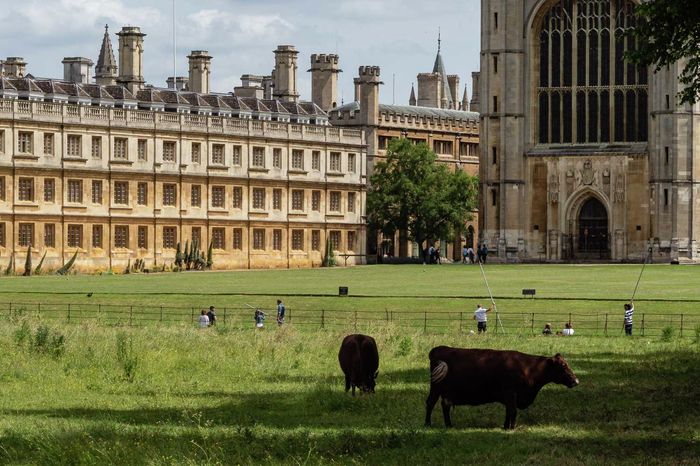University trademark sparks legal feuds with local firms
The University is involved in a legal dispute over their rights to the word ‘Cambridge’

The University has found itself in the midst of a legal dispute over their rights to the word ‘Cambridge’ after a local company attempted to trademark the name Cambridge Neurotech.
Tahl Holtzman applied to trademark the name in 2017, but was informed of a formal opposition from “the Chancellors, Masters, and Scholars of the University of Cambridge” at five minutes to midnight on the final day to register objections.
The University does not claim to own the word ‘Cambridge’ but does hold trademarks for the word in some categories, including ‘university education services’, ‘bibles’, and ‘stickers’.
These trademarks allow the University to object to others’ use of the city’s name if they believe it will affect their own branding or cause confusion over ownership.
In a statement to the BBC, Holtzman called it “quite bizarre for any entity to claim to own a geographical location”.
He feels it to be a “Lords-and-peasants kind of situation where ‘I’m the lord of this – I own Cambridge’.” Holtzman called it “unhelpful – indeed harmful – in the Cambridge bubble for the university to stifle start-ups who quite rightly want to say ‘We are located in Cambridge, therefore it’s part of our trading name and trademark’.”
The University filed 350 pages of evidence in objection to the trademark application, while Holtzman’s firm spent £30,000 in legal fees.
“They can outspend you and they don’t care how long it takes,” he said, comparing the situation to “David and Goliath”.
This is not the first time the University has objected to a trademark application including the city’s name. Applications for the names ‘Cambridge Blue’ (a beer), ‘Cambridge Football Club’, and ‘Cambridge Rowing’ were also refused.
After a hearing related to the University’s objection to attempts to trademark the business name ‘Cambridge Quantum Computing’, hearing officer George Salthouse said the University “clearly suffers from the delusion that it owns the rights to the term Cambridge no matter what field of activity is involved”.
“The days when the then town of Cambridge revolved entirely around the University have long since disappeared”, he said.
A spokesperson for the University said: “Polling shows that the vast majority of the public associate the word ‘Cambridge’ with the University, especially in education, research, innovation and related areas.
They continued: “We protect the Cambridge name where there’s a risk of confusion with the work of the University. This is to prevent people from being misled and to support our global mission in education, research and innovation. We do not claim to own the rights to Cambridge across all fields of activity and have never done so.”
They added: “Our aim is always to work with people to agree a way forward that is beneficial to everyone involved. We will only pursue legal action if we believe our rights are being infringed, or if organisations are trying to trade on the University’s reputation or mislead the public into thinking their products and services are associated with us.”
 Features / Should I stay or should I go? Cambridge students and alumni reflect on how their memories stay with them15 December 2025
Features / Should I stay or should I go? Cambridge students and alumni reflect on how their memories stay with them15 December 2025 News / Cambridge study finds students learn better with notes than AI13 December 2025
News / Cambridge study finds students learn better with notes than AI13 December 2025 News / Dons warn PM about Vet School closure16 December 2025
News / Dons warn PM about Vet School closure16 December 2025 Comment / The magic of an eight-week term15 December 2025
Comment / The magic of an eight-week term15 December 2025 News / News In Brief: Michaelmas marriages, monogamous mammals, and messaging manipulation15 December 2025
News / News In Brief: Michaelmas marriages, monogamous mammals, and messaging manipulation15 December 2025









